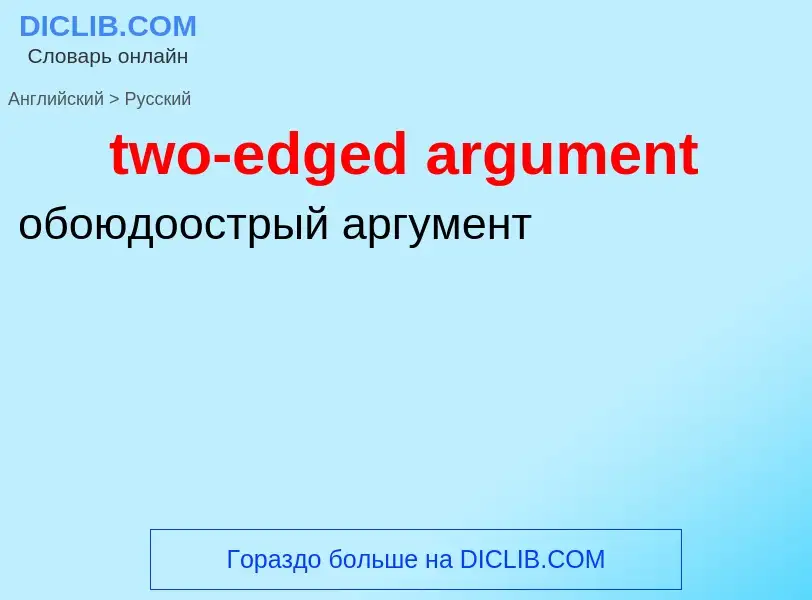Traducción y análisis de palabras por inteligencia artificial
En esta página puede obtener un análisis detallado de una palabra o frase, producido utilizando la mejor tecnología de inteligencia artificial hasta la fecha:
- cómo se usa la palabra
- frecuencia de uso
- se utiliza con más frecuencia en el habla oral o escrita
- opciones de traducción
- ejemplos de uso (varias frases con traducción)
- etimología
two-edged argument - traducción al ruso
['ɑ:gjumənt]
общая лексика
аргумент, действительный (фактический) параметр
в программировании - параметр (константа, переменная или выражение), передаваемый вызывающей программой функции, процедуре или методу
переключатель, позволяющий пользователю задать конкретные действия или свойства при вызове команды, командного файла или макрокоманды. Синоним - опция
аргумент
логический довод, служащий основанием доказательства
довод
аргумент функции
доказательство
аргументация
(рас)суждение
обсуждение
дискуссия
спор
математика
независимая переменная
синоним
существительное
общая лексика
довод
доказательство
аргумент
аргументация
аргументированное выступление (в защиту чего-л.)
спор
дискуссия
тема или основная идея (литературного произведения)
краткое содержание (книги)
дискуссия, спор
краткое содержание (книги)
логика
средний термин силлогизма
математика
независимая переменная
аргумент, независимая переменная
вычислительная техника
параметр
синоним
Definición
Wikipedia
In linguistics, an argument is an expression that helps complete the meaning of a predicate, the latter referring in this context to a main verb and its auxiliaries. In this regard, the complement is a closely related concept. Most predicates take one, two, or three arguments. A predicate and its arguments form a predicate-argument structure. The discussion of predicates and arguments is associated most with (content) verbs and noun phrases (NPs), although other syntactic categories can also be construed as predicates and as arguments. Arguments must be distinguished from adjuncts. While a predicate needs its arguments to complete its meaning, the adjuncts that appear with a predicate are optional; they are not necessary to complete the meaning of the predicate. Most theories of syntax and semantics acknowledge arguments and adjuncts, although the terminology varies, and the distinction is generally believed to exist in all languages. Dependency grammars sometimes call arguments actants, following Lucien Tesnière (1959).
The area of grammar that explores the nature of predicates, their arguments, and adjuncts is called valency theory. Predicates have a valence; they determine the number and type of arguments that can or must appear in their environment. The valence of predicates is also investigated in terms of subcategorization.



